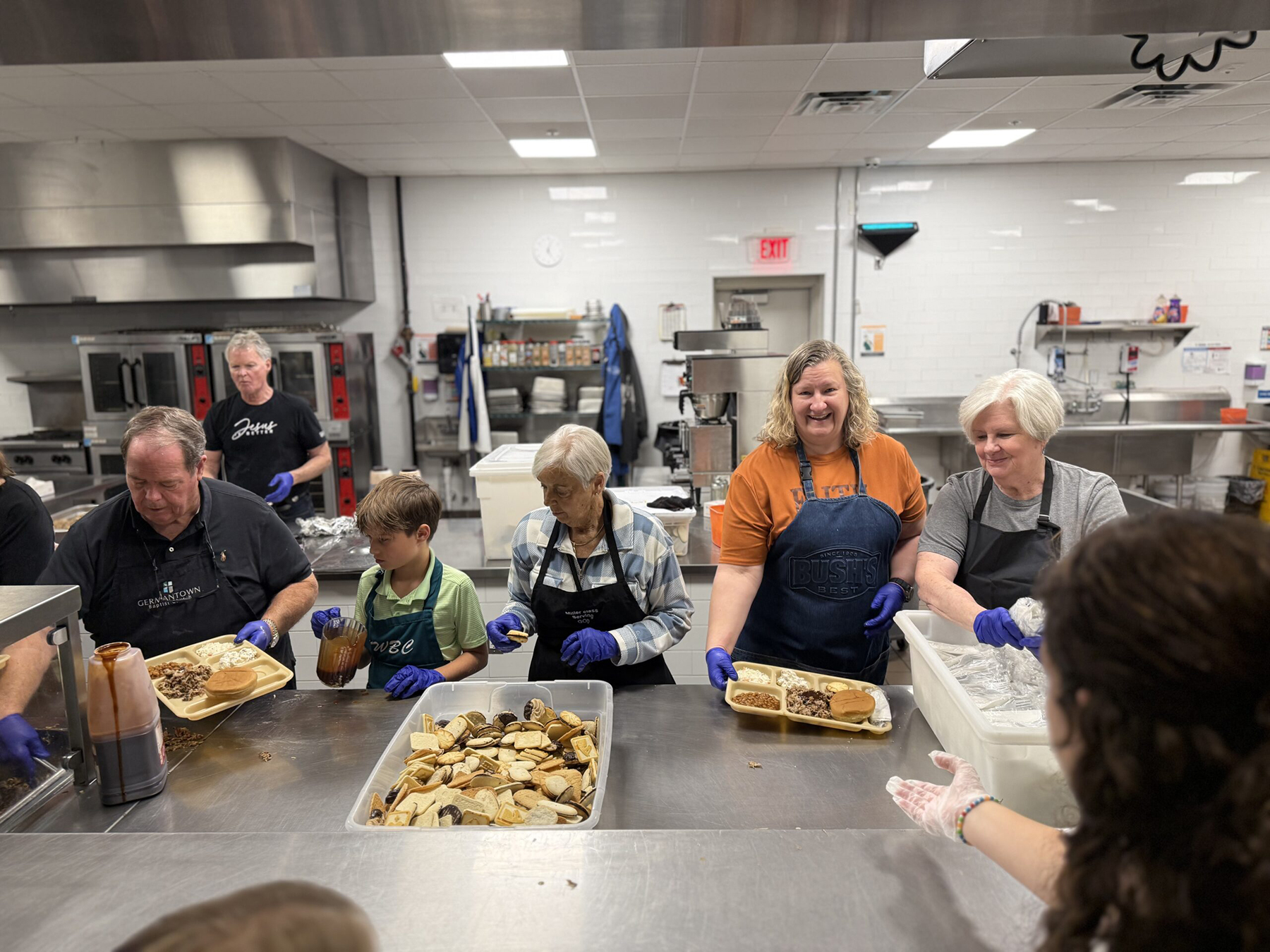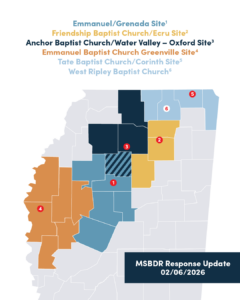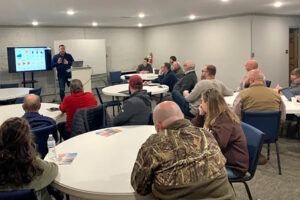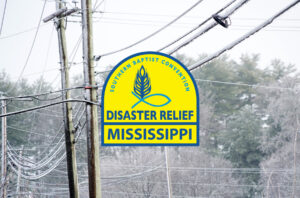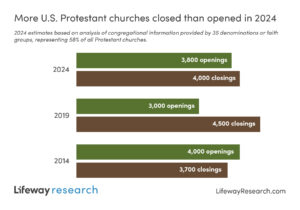NASHVILLE (BP) — Benevolence ministry never slows down, but it picks up during the holidays.
For it to truly be successful, benevolence must also be ongoing. It may begin with a phone call, but it doesn’t stop there.
“’Tell me more,’” said Taylor Field, a Send Relief consultant who ministered in New York’s Lower East Side for over three decades while leading Graffiti Church. “Those three words are something you can ask, even if you’re not a counselor or social worker. You can sit down with someone, look them in the eye and ask that. Once you do, you’re going to find out a lot more about them.”
The topic of benevolence got a boost in recent weeks after a young woman’s TikTok videos went viral. The woman made calls to numerous churches and religious groups posing as a single mother with a crying baby, represented by a sound effect. If the person on the other end directed her to a partnering ministry, she said she did that and they weren’t available but could that individual church help her at that moment. According to her chart, 31 out of 40 churches she called fell in the “No” category of offering help.
In this case the woman asked for a single can of formula. That isn’t something many churches have available, and some of those she called offered to meet her somewhere to provide a can, at which point she would tell them it was an experiment.
Benevolence ministry takes on different forms with different protocols among churches looking to make the most of their resources and partnerships to help as many as possible. That includes ascertaining the honesty of the one making the request.
A desire for effectiveness
“We worked in church community ministry for over 35 years, and a lot of those people were unhoused or street people,” Field said. “We encountered a lot of them and developed a process in talking to them. If they gave me pressure [for an item], I told them I can’t help them unless they let me be a part of their life.”
A call to Germantown Baptist Church in west Tennessee led to a minister-on-call explaining to the caller that their benevolence ministry was only for members.
Without further context, that would appear to be short-sighted or even cruel. However, it’s for a reason.
“We have seen that there are opportunities for people to come in and take advantage of the system for one reason or another,” said Micah Carter, Germantown’s executive pastor. “So, our benevolence ministry takes requests and does some assessment to meet the needs accordingly. We believe in Jesus’ words to love, serve and care for one another in the family of God and that is something we don’t apologize for.
“It’s been a really good and effective process for our church family. The video of the call was incomplete, because it did not facilitate a conversation about real helps for those in our community who are not connected to our church. We love and support them as well.”
That doesn’t mean those guides are concrete. For some time, the church has hosted a group of around 75 special needs adults on Fridays for food, singing and fellowship. Germantown’s deacons, who oversee the benevolence ministry, opened resources weeks ago to a number of those individuals when it became known they would not receive SNAP benefits due to the government shutdown.
“One of our four core values as a church is to serve others,” Senior Pastor Matt Brown told Baptist Press. “We’ve been really clear with our folks that this is what we do, and we do that in different ways through numerous missions and ministry partnerships throughout the world with our budget. And beyond that, we have community partners that are not necessarily in our budget.”
Services, not money
An effective benevolence ministry helps a person deal with the situation that prompted the need in the first place, said Field, whether that be addiction, unemployment or something else.
“We had a policy – ‘Services, not money,’” he said. “That cleared it up for some people and made it clear we weren’t their banker. Giving money often made us part of something we didn’t want to be a part of.”
Handing out items didn’t always help. Field said he had seen people receive a can of baby formula and promptly sell it or return it for cash. Churches partnering with each other and outside organizations protect the effective use of resources, thus helping more people.
Send Relief offers resources for churches looking to strengthen their benevolence ministry. How to Strengthen Your Community is a course that helps focus on needs while serving the unserved. The Micro Grants Ministry Guide is one of many by Send Relief and leads congregations to more effectively assist vulnerable families overcome financial hardships.
“We all know the stories of people calling every church in the county and seeing what they can get, and no church wants to be a part of that,” Field said. “Romans says to let your love be genuine, and just giving something to someone and being done with them isn’t that.”
Germantown Baptist’s budget reflects partnerships with local groups that have expertise, resources and connections to better serve those in need, said Brown.
“Our people know our benevolence program is a fraction of the money we use for benevolence needs outside of the church, which is considerably larger,” he said.
Relief and release
“Relief work” best describes the act of giving some kind of relief. What Field advocates is “release work.”
“This is when someone is released from a codependent situation or addiction and is released from sin,” he said. “It takes longer, but that’s where churches are powerful. They include someone, like to a Wednesday night dinner” alongside other gatherings.
Benevolence needs increase during the holidays. This year, the government shutdown and interruption of SNAP benefits exacerbated that. First Baptist Church in Sevierville, Tenn., is among those seeing the results, feeding 25 percent more than normal, while also opening showers and providing haircuts.
Nonprofits raise nearly half their funds in November and December, due largely to the holiday spirit and end-of-year tax considerations. Giving rebounded last year for the second-highest total on record.
Michael Bowen, communications pastor at Broadmoor Church in Madison, said those funds bring accountability.
“As a church, you want to meet the need, but there is also a responsibility to those giving to the ministry,” he said. “Balancing the two can be tricky.”
Broadmoor was also contacted in the social media “experiment.” They were placed in the “No” category when the receptionist directed the caller to MadCAAP — Madison Countians Allied Against Poverty.
“Our receptionist started walking her through the situation in reaching out to MadCAAP,” Bowen said. “Due to some folks losing SNAP benefits, we had started a food drive the week before and increased our donations to them.”
The caller’s response to the receptionist that MadCAAP wasn’t open struck her as odd.
“She’s answered a lot of those calls and felt like something wasn’t quite normal about the situation, but couldn’t identify it at the time,” Bowman said.
Broadmoor’s benevolence ministry is focused on those who have “any association” with the church, he added. A care pastor works with a team of about a half-dozen members as to how best meet those needs.
“Churches are known for being generous, as a general rule,” he said. “So, for those in the community, whether it’s a spiritual of physical need, you want to get them help. But we also want to follow the Acts 2 model of caring for those within our church community.
“It can be a tension on how to care for both effectively, and I think a lot of churches wrestle with that. You want to minister well both inside and outside the walls of the church.”

